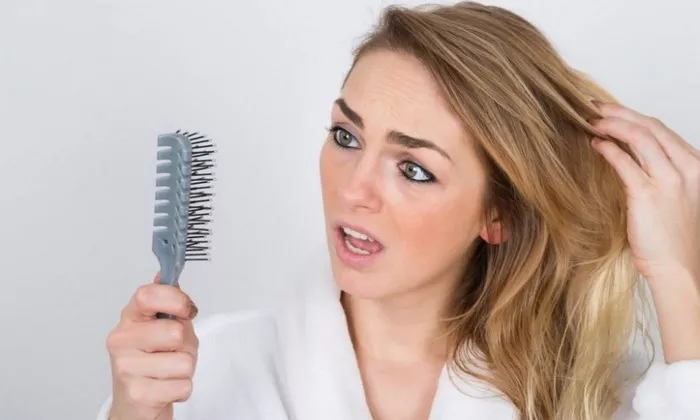Dealing with hair thinning and loss can be emotionally challenging, but understanding its prevalence is crucial. Approximately 50 percent of women will grapple with noticeable hair loss during their lifetime, dispelling the notion that this struggle is isolated. Dr. Sara Perkins, MD, a dermatologist and member of the medical advisory board of Hims & Hers, emphasizes the need to avoid self-blame as a common pitfall when facing thinning hair.
“The biggest mistake women make in terms of thinning hair is that they blame themselves or something they are doing,” says Dr. Perkins. “Female pattern hair loss is extremely common, and, while the exact pathophysiology isn’t fully understood, it’s thought to be due to genetic predisposition and sensitivity to circulating androgens, as well as nonandrogenic factors.”
While genetic factors play a significant role, hormonal changes emerge as a major contributor to hair thinning in women, particularly during menopause. Dr. Marina Peredo, MD, founder of Skinfluence Medical PC, and associate clinical professor at the Mount Sinai School of Medicine Department of Dermatology, explains that reduced estrogen during menopause alters the hair growth cycle, resulting in thinner hair—a condition known as androgenic alopecia.
Beyond genetic and hormonal factors, Dr. Ben Benham, MD, dermatologist at Santa Monica Skin and co-founder of Happy Head, identifies various causes of hair loss and thinning in women. These include thyroid problems affecting hormone levels, deficiencies in iron, vitamin D, or vitamin B6, menopause, rapid weight loss, and major stressors triggering telogen effluvium—a reversible type of hair loss. Additionally, discontinuing oral contraceptives after extended use may lead to hair thinning.
To prevent or mitigate hair thinning, Dr. Benham advises regular medical checkups to identify and address underlying conditions. Daily care practices play a crucial role as well. Experts recommend avoiding tight hairstyles, maintaining a diet rich in protein, iron, and vitamin D, managing stress, limiting exposure to harsh chemicals, hair dye, and heat-styling, minimizing the use of styling products that can clog pores and damage follicles, and refraining from over-shampooing. By adopting these practices, women can proactively care for their hair health and navigate the challenges of thinning hair with confidence.


